BOOK BY JODI PICOULT & TIMOTHY ALLEN McDONALD MUSIC & LYRICS BY ELYSSA SAMSEL & KATE ANDERSON


BOOK BY JODI PICOULT & TIMOTHY ALLEN McDONALD MUSIC & LYRICS BY ELYSSA SAMSEL & KATE ANDERSON

 Written and prepared by DEM Productions
Written and prepared by DEM Productions
• Introduction
• Meet the Author
• Synopsis
• Song List
• Character Breakdown
• Why Adapt The Book Thief?
• Musicals Set in Wartime

• Musicals About Antisemitism
• Key Themes and Content
• Nazi Germany and German Complicity
• Prejudice and Discrimination
• Bridging Between Communities
• Antisemitism & The Holocaust
• Contemporary Antisemitism
• The Power of Words: Political Rhetoric & Censorship
• Activities
A very warm welcome to this education pack, which accompanies the production of The Book Thief, based on the best-selling novel by Markus Zusak, adapted by Jodi Picoult and Timothy Allen McDonald with music and lyrics by Elyssa Samsel and Kate Anderson.
The Book Thief portrays the rise of fascism in Nazi Germany through the eyes of a child, dealing directly with the Holocaust, persecution of the Jewish population, and the power of political rhetoric.
In 2023, we regrettably find startling contemporary relevance in the key themes of this story. Antisemitism continues to be a pervasive threat in both the UK and USA, including recent antisemitic protests outside the current Broadway production of Parade. The Book Thief is an important reminder that history runs the risk of repeating itself if the far right is left unchecked.

We also live in an era of increasing censorship with progressive book titles being banned in countless school districts and states in the USA. We are worryingly close to scenes of book burning experienced by Liesel in our own story.
The Book Thief shows what happens when stories cannot be shared, when words of hate are allowed to drown out those of hope, and the danger of dehumanising those from whom we are different.
This production has been brought together by an exceptional team of people including the creative team, cast, musicians, crew, production staff, producers, and countless others. Making new musicals is a labour of love and we are eternally grateful to everyone who has been involved since the beginning of the process: from the actors involved in early workshops, the entire company of the Octagon production and brilliant staff who brought it to life in their building, and to everyone who is a part of this next exciting stage of development.

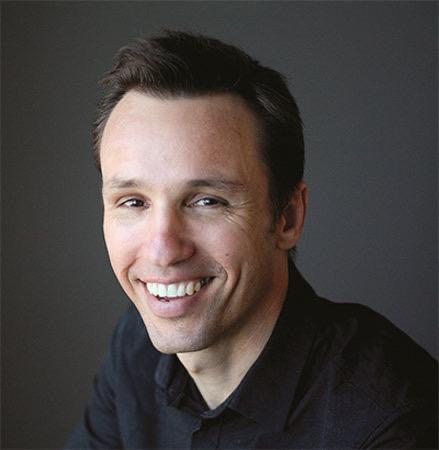
Markus Zusak is the author of six novels, including, I am the Messenger, Bridge of Clay, and the worldwide phenomenon, The Book Thief, which has been translated into more than fifty languages and has spent more than a decade on the New York Times bestseller list.
The novel was written in Zusak’s hometown of Sydney and was born from the stories of his parents, who immigrated to Australia from Germany and Austria. Neither parent could read or write English when they first arrived in Australia, but they wanted their children to master the language and strongly encouraged them to read and communicate in English from an early age. Zusak began writing fiction at age 16 and pursued a degree in teaching. The Book Thief was originally intended to be a short novel, not more than a hundred pages but it turned out to be a 580-page epic and one of the most beloved books of the twenty first century

The Book Thief is narrated by a mysterious character whose identity is unknown as we begin the show.

The story begins with Liesel being taken to live with a foster family in the town of Molching, and along the journey, her little brother dies. She brings nothing with her but her nightmares and a stolen book, stolen from the snow at her brother’s graveside. Liesel’s new family are Hans and Rosa Hubermann, a poor couple who struggle to make ends meet. Hans and Liesel’s relationship develops quickly, thanks to his bad jokes, accordion playing, and teaching her how to roll cigarettes. Rosa has a heart of gold, buried deep beneath her cursing crotchety persona.
When Hans discovers that Liesel can’t read, he teaches her during midnight classes, and she begins to learn the power of words. At a Nazi rally in the town, Liesel can’t help herself and steals a charred book from the bonfire of banned literature. When she drops off the washing at the house of the Mayor of the town, his grieving wife invites Liesel into her library, and she can’t believe her eyes.
Liesel meets Rudy, her next-door neighbour who is obsessed with AfricanAmerican athlete Jesse Owens, and they become best friends. Rudy is desperate for a kiss. Liesel isn’t so keen.
When a young Jewish man arrives on the Hubermanns’ doorstep in the middle of the night, the family take a huge risk and hide him out of sight in their cellar. Hans tells Liesel how Max’s father saved his life during the World War I and how he promised to help Max if he was ever in need. Max Vandenburg is a fighter, both in the boxing ring and against the Nazi regime that is persecuting him. Liesel and Max bond over their shared nightmares and love of telling stories. Through Max, Liesel learns that words can be used for bad as well as good and they begin to tell the story of a small, strange man who decided to rule the world…
After a search of the basement by a Nazi official, Max realises that he cannot put the Hubermanns in danger for harbouring a Jew any longer and he disappears during an air raid. He leaves behind his copy of Mein Kampf for Liesel, with the pages painted white for her to ‘write love over hate’ using her own words. Liesel is devastated and lashes out at words for betraying her.

With parades of Jews being marched through Molching ever more frequently, Liesel watches closely, searching for Max. When Hans offers bread to a starving Jew in the procession, he is conscripted to join the war effort and taken away immediately. Liesel has lost another person in her life.
Recruiters arrive to take Rudy to a school for elite young German athletes, but Rudy’s father refuses, and is also taken to fight for the Fatherland. Liesel tries to cheer Rudy up and confides that her family hid a Jew in their basement.
After sharing her true feelings about Hans’ absence with Liesel, Rosa sends her to collect payment from the Mayor’s wife for the washing, where she says she can no longer employ them. Dreading telling Rosa the bad news, Liesel returns home and is stunned to find that Hans has come back from the front line.
Liesel and Rudy again scan the Jews being marched through town – and this time she sees Max. She intervenes and is pushed to the ground by a Nazi soldier. She runs home, finds the book Max left in the basement, and writes her story: The Word Shaker, an allegory about the power of words and the rise of fascism.
In Liesel’s story, the small, strange man sews seeds of hate that grow into a forest ripe with anger. People throw words down from the trees to the masses below, but one is a girl unlike the rest. She is friends with a man others hate, and from his cheek she takes a tear of friendship that she plants, which grows into the tallest tree. From her perch she sees that no one can cut down the offending tree,
until one day a stranger comes to town and climbs up.
The girl recognizes her friend, and as they climb down, the scarred tree falls.
Liesel’s dream-world intersects with reality. She emerges from the basement to find Molching reduced to rubble. Rudy, Rosa, and Hans lie dead. As she says tearful goodbyes, the Narrator hands each of them a suitcase for their journey on. The Narrator muses over Liesel’s parting words, revealing – finally – his identity, when he admits that even Death has a heart.
Confessing that Death is the most unlikely advocate for the human race, he shows the audience the rest of Liesel's life. A young girl who has lost everything might give in to darkness – but Liesel doesn’t: she lives with Rudy’s father who too has lost his family, works in his tailor shop, and years later is reunited with Max, who survives the war and Holocaust. Max gives Liesel away at her wedding. We see her with her son, named Rudy, and learn that she became a librarian, sharing stories with all her patrons, spreading love over hate.
The Narrator reveals that he too is a book thief, having swiped Liesel’s story from the rubble. Fascinated by how she didn’t succumb to hate given the horrors of her past, he asks her how the unfinished story ends. She explains that the fallen tree sowed the seeds of friendship which persisted throughout her life. As we close, the Narrator reminds us that we are all going to die and thus invites us to reflect on how we choose to live.
The Narrator tells us about a story he has studied – the life of Liesel Meminger. He warns us to pay close attention because her story tells us an important message about humanity.
Liesel, Hans
Liesel is left alone outside her new home and talks to the stars. They are always there, a constant in her tumultuous life so far. Hans joins her with his accordion.
Rudy, Ensemble
Liesel meets her next-door neighbour
Rudy who shows her the town. He is enamoured with Liesel and bets her that if he wins a race, he gets to kiss her. He isn’t successful!
The townsfolk sing an anthem to Hitler and to the power of Germany.
Liesel, Hans, Max, Ensemble
Liesel enters the library of Ilsa Hermann and is amazed at the sight of all the books. Hans works out how he’ll get Max to their house to hide and Max receives his message, hidden in the pages of Mein Kampf.
Hans, Ensemble
Hans tells Liesel the story of his friendship with a young Jewish man with whom he fought during WWI. The man gave his life instead of Hans so Hans is repaying the favour by hiding his son, Max. He urges Liesel to keep this a secret.
Wolfgang, Hans, Alex Steiner, Ensemble
The owner of the local Bierkeller and a member of the Nazi Party congratulates Hans on his membership confirmation and jokes that he is slow to join up. Hans becomes drunk and is saved from sharing his true feelings by fellow sceptic of the regime, Alex Steiner.
Max, Narrator, Ensemble
Max imagines he is at a boxing match fighting Hitler himself. He shows Liesel how the fight isn’t a fair one and how the Fuhrer uses words to cheat.
Max
During an air raid, Max emerges from the house to see the night sky. He greets the stars and mourns the loss of those that the stars represent in his allegory.
Liesel, Narrator, Hans, Rosa, Max, Ensemble
Angry at Max’s departure, Liesel rejects the words he has left her as a betrayal. When a parade of Jewish prisoners come through the town, Hans tries to help and is conscripted as a punishment. The strength of the Nazi regime is shown in all its might.
Jesse Owens
Rudy, Narrator, Ensemble
Rudy is in his fantasy world, pretending to be Jesse Owens. His father Alex tells him to stop and that he cannot pretend to be him anymore because it is too dangerous.
Dreadful
Rosa
Rosa complains about Hans even though he is gone, and unintentionally shows Liesel how much she misses him.
Writing Letters
Narrator, Hans, Max
Hans and Max try and fail to write and send letters to their loved ones.
Liesel, Rudy
Liesel tries to cheer Rudy up after Alex is taken to join the war effort. He nearly gets his kiss.
The Word Shaker
Narrator, Liesel, Ensemble

Liesel tells the story of a small strange man – an allegory for the rise of facism and how friendship and kindness is the only way to combat the hate spread by the Nazis.
The Word Shaker Part 2
Narrator, Ensemble
The Narrator tells the story of the rest of Liesel’s life and after her death, asks her to finish the story she started when the bombs fell.
Liesel Meminger
Liesel is twelve and has been sent to live with foster parents by her mother who can’t afford to look after her. When she arrives at the Hubermanns’, she longs to read but doesn’t know how. Liesel is a loyal friend and very caring to those around her. She is curious and inquisitive.

Hans Hubermann
Hans is an out-of-work painter and handyman who loves cigarattes and playing his accordion. He has a great sense of humour and enjoys winding Rosa up. He fought in the first World War and has a strong loyalty to lost friends. Hans does not like the Nazi regime, although he is careful not to say too much.
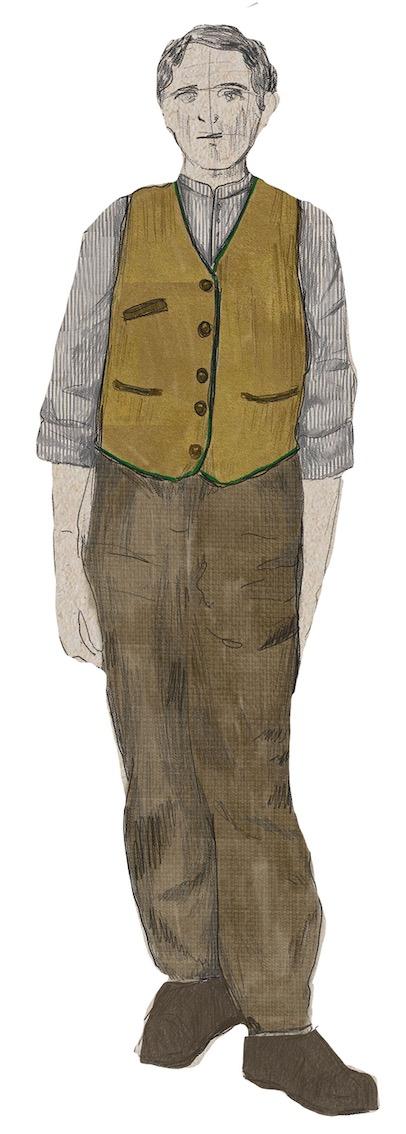
Max Vandenburg
Max is a young Jewish man who before going into hiding, was a boxer. He is very grateful to Hans and Rosa for hiding him but holds a lot of anger about what is happening to him and other Jewish people in Germany. He helps Liesel to understand the power of words and how they can be used for bad as well as good.
The Narrator

The Narrator is a mysterious figure who doesn’t quite seem to fit within the world. He is fascinated by humans and by Liesel in particular. Later in the show, we learn that the Narrator is in fact Death. He walks the earth collecting souls, taking them on to the next place.

Rosa Hubermann
Rosa has a hard exterior and is usually cross with Hans for something or other. She does laundry for wealthier members of the community and has a lot to say about her clients. On the inside, she is deeply caring and loves Hans more than she is willing to say out loud. She is very protective of Liesel.

Rudy Steiner

Rudy is Liesel’s next-doorneighbour and classmate. They quickly become best friends and Rudy longs for a kiss with Liesel. He is a brilliant athlete and a superfan of the African American gold-medal sprinter Jesse Owens. He often gets in trouble for pretending to be Jesse Owens.

The Hubermanns’ nextdoor neighbours, the Steiners are also sceptical of the Nazi party. Alex runs the tailor shop and is keen for Rudy not to get into trouble for pretending to be Jesse Owens, even though he doesn’t agree with the racism towards him.

Ilsa is the wife of the Mayor of Molching and Rosa does her laundry. When Liesel visits to drop of the washing, Ilsa shares her extensive library with her. Ilsa’s son died during the first World War and she is crippled by grief. Sharing her library with Liesel brings her great comfort.



Max’s boxing buddy, Walter helps Max whilst he is in hiding before he goes to the Hubermann’s. He helps deliver his letters that organise his journey to his hiding place and brings him food and items of comfort.
Wolfgang Edel
Wolfgang is the pub landlord and a cheerful, jolly chap. He is a member of the Nazi party and is often trying to recruit other people to join, including Hans and Alex. He thinks that Hitler and the regime are a great thing.

As an important figure in the town, the Mayor of Molching is a high ranking member of the Nazi Party and is proud to welcome senior party officials to his town. He is tough and commanding of Ilsa Hermann.


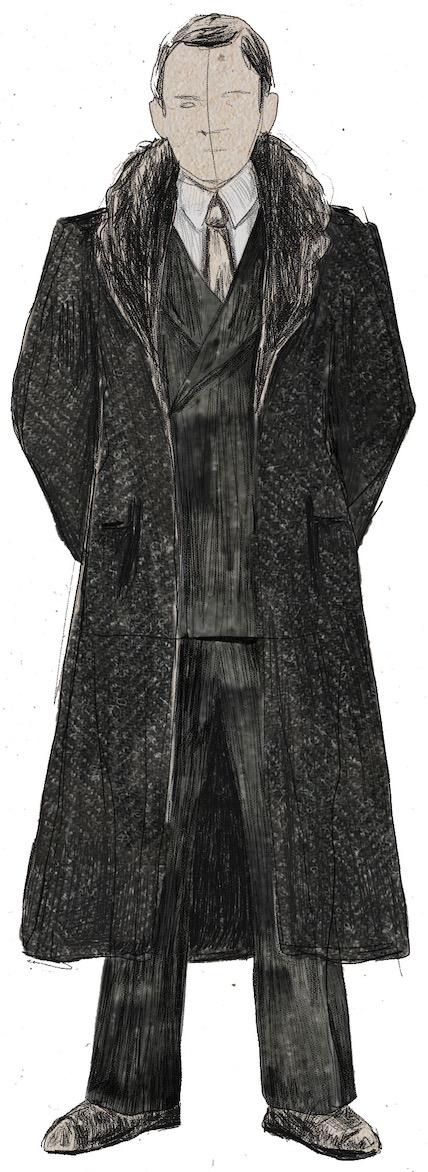
Tommy is a teenager in the town and proud member of the Hllter Youth, running errands for the local party office.
Max’s mother knows that the chances of both her and Max escaping capture is slim so she sacrifices herself to let him get away. Having lost her husband in WWI, she wants to make sure Max survives.
Tommy Muller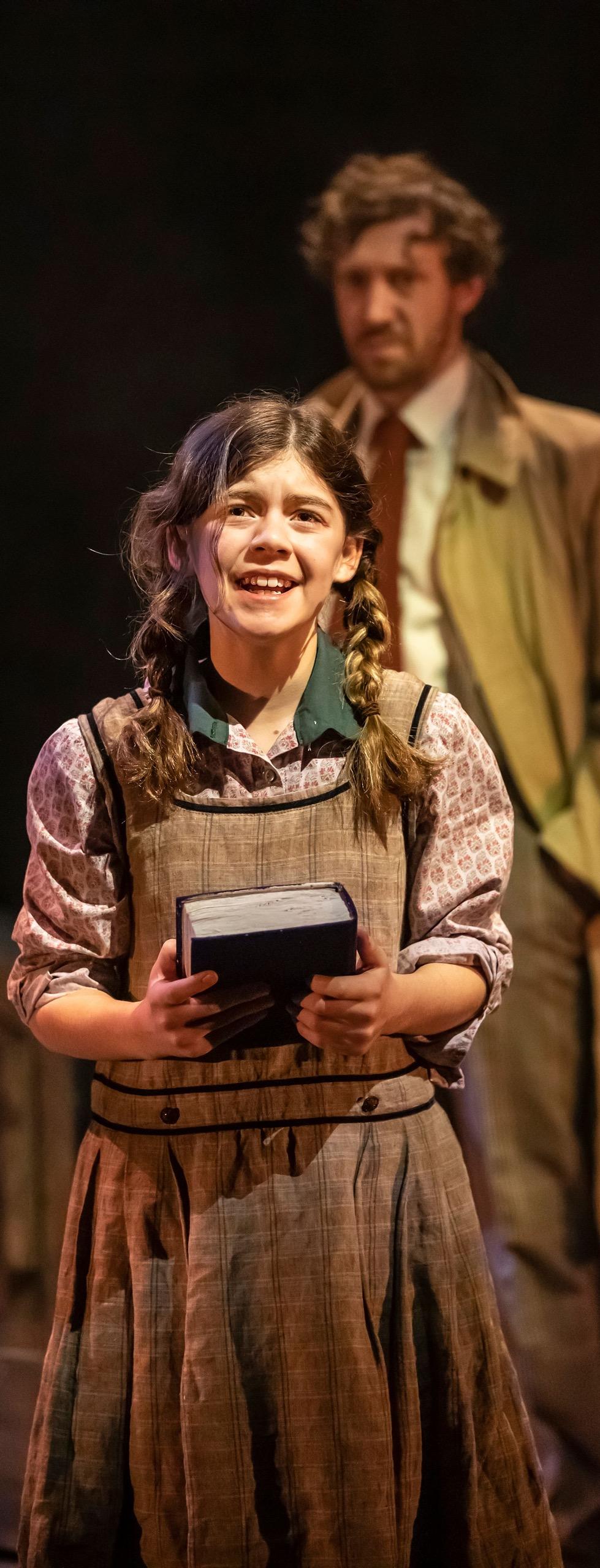 By Jodi Picoult, Timothy Allen McDonald,
By Jodi Picoult, Timothy Allen McDonald,
The writing team for The Book Thief met eight years ago, on another project called Between the Lines – a musical that was being adapted from one of Jodi’s novels. When we all started working together, it was so rewarding that none of us wanted our creative partnership to end. We made a list of other titles we wished we could adapt as a musical –and the novel The Book Thief was at the top. Millions of readers have fallen in love with Markus Zusak’s beautiful story of a young girl, Liesel, who loses everything in World War Two, but learns the power that words have both to harm and to heal.
Jodi had previously met Markus at a literary festival, and she begged him for the rights to adapt the novel. He graciously agreed, and we got to work. We had writing sessions at Jodi’s home in Vermont. At one crucial point, we found ourselves stuck. The best collaborative moments are the ones where you feel like you are part of a relay team, passing a torch – and that is exactly what happened. We were doing a read-through of new material Jodi and Tim had written, when suddenly Elyssa began scribbling furiously on her script. She and Kate conferred, and The Word Shaker – the dramatic culmination of our show – was born. With it came the language – both musical and metaphorical – that we used as building blocks for this show.
We began our development of the musical in New York City in early 2016, when Markus’ book felt like a cautionary tale for a different time. Tim had met Lotte Wakeham at the Junior Theatre Festival Europe and watching her work with young people on the fly impressed him so greatly that he pitched the rest of the team to have her join us as director. Plans were made to bring the show to the Octagon in 2021, but then the world stopped, due to the Covid-19 pandemic.
As time passed, we watched the murder of George Floyd, a rise of white supremacy, an American president who (for the first time in US history) rejected a peaceful transfer of power, and instead encouraged an insurrection against democracy itself, cataclysmic flooding and tornadoes, war in Ukraine. If ever there was a time for the universe to eliminate humans, it seemed to be now.
That also happens to be the question posed theoretically by The Book Thief. Given all the harm we inflict upon each other...is the human race worth saving?
Markus Zusak’s novel explores the consequences of extreme nationalism during World War Two. Within its pages are hatred of immigrants; an erosion of human rights; denial of science; the demonization of the media; the consolidation of power under a leader who exploits victims through lies and hatred. But to our creative team... this novel of Nazi Germany suddenly
sounded a lot like some modern-day countries. History has a nasty habit of not staying in the past.
At the time of this writing, Jodi’s novels have been banned in four different US states by groups that are policing what books should and should not be available to students in school libraries. LGBTQ rights are being threatened. Abortion has been restricted or terminated entirely in approximately half of America. Antisemitic vandalism is on the rise and white supremacist groups are actively recruiting on college campuses. Although we are looking through an American lens, we know that our country isn’t the only one where it feels like cruelty is overtaking kindness. The Book Thief feels less like a cautionary tale, and more like nonfiction.
This production of The Book Thief is arriving at a moment when history seems destined to repeat itself. We hope Liesel’s journey will inspire our audiences – regardless of their political leanings –to remember what we have in common rather than what makes us different, to fight adversity with kindness, and to write love over hate.

Why is it important to learn about the history of Nazi Germany today?
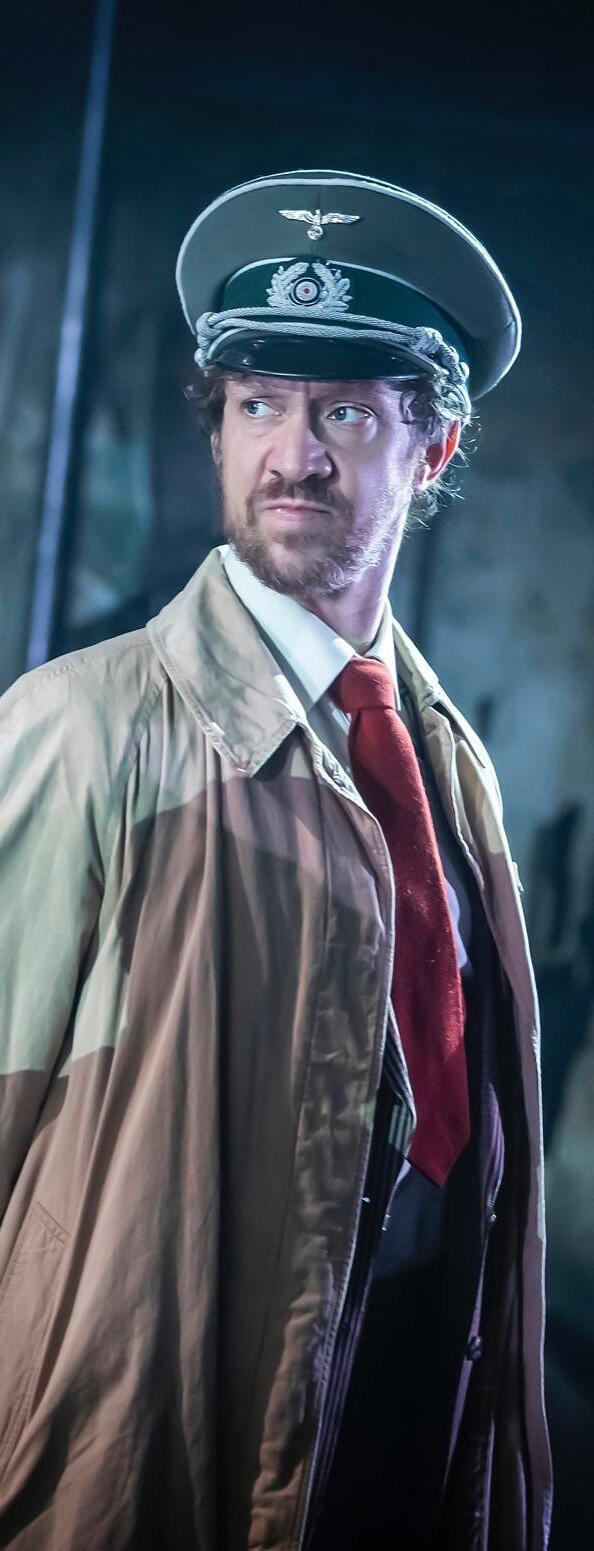
World War II has been the backdrop for several compelling stories that have been adapted into musicals, offering a unique blend of history, music, and storytelling. Here are a few notable examples:
The Sound of Music : This beloved musical, based on the real-life story of the von Trapp family, follows their escape from Nazioccupied Austria. It explores themes of love, courage, and resilience in the face of adversity.
Miss Saigon : While not directly focused on World War II, Miss Saigon portrays the impact of the war on the lives of Vietnamese people. Set in Saigon during the Vietnam War, the musical tells a tragic love story against the backdrop of war and its aftermath.
Cabaret : Set in Berlin during the rise of the Nazi Party, Cabaret explores the intertwining lives of characters at the infamous Kit Kat Klub. It delves into themes of political turmoil, repression, and the erosion of freedoms during the Nazi era.
South Pacific : This classic Rodgers and Hammerstein musical takes place on a Pacific island during World War II. It addresses issues of race, prejudice, and love amidst the backdrop of war.
These musical adaptations provide audiences with an engaging and often emotional experience, exploring different aspects of World War II and its impact on the lives of individuals. Through music, dance, and storytelling, they offer a unique perspective on historical events and the human experiences during this tumultuous time.
The Holocaust, a dark period in history, has been the subject of a few musicals that strive to explore and commemorate the experiences of those affected. These musicals offer a unique way of telling these stories and keeping the memory of the Holocaust alive. Here are a few notable examples:
The Diary of Anne Frank : A Musical : Based on Anne Frank's famous diary, this musical adaptation portrays the experiences of Anne and her family as they hide from the Nazis in Amsterdam. It captures the resilience, hope, and the human spirit amidst the horrors of the Holocaust.

Parade : Though not solely focused on the Holocaust, Parade tells the true story of Leo Frank, a Jewish factory manager accused of murder in 1913 Atlanta. The musical examines themes of anti-Semitism, prejudice, and injustice, with the backdrop of the rising tensions leading to the Holocaust.
The Rothschilds : This musical portrays the rise of the Rothschild family, a wealthy Jewish banking dynasty, during the 19th century. It touches upon their struggles against anti-Semitism and discrimination, highlighting the social and political climate that later contributed to the Holocaust.
Ragtime : While encompassing various historical events, "Ragtime" also addresses the treatment of Jewish immigrants and the rise of anti-Semitism during the early 20th century. It weaves together the stories of different communities, including African Americans, immigrants, and Jewish characters, in a poignant exploration of American society during that time.
These musicals tackle the difficult subject matter of the Holocaust, providing audiences with an emotional and thought-provoking experience. Through music, lyrics, and storytelling, they aim to preserve the memory of those who suffered and educate future generations about the horrors of the Holocaust.
The Book Thief is set in a town in southern Germany under the Nazi regime. The setting is an important feature in the story as this was an unprecedented time in the history of humanity.
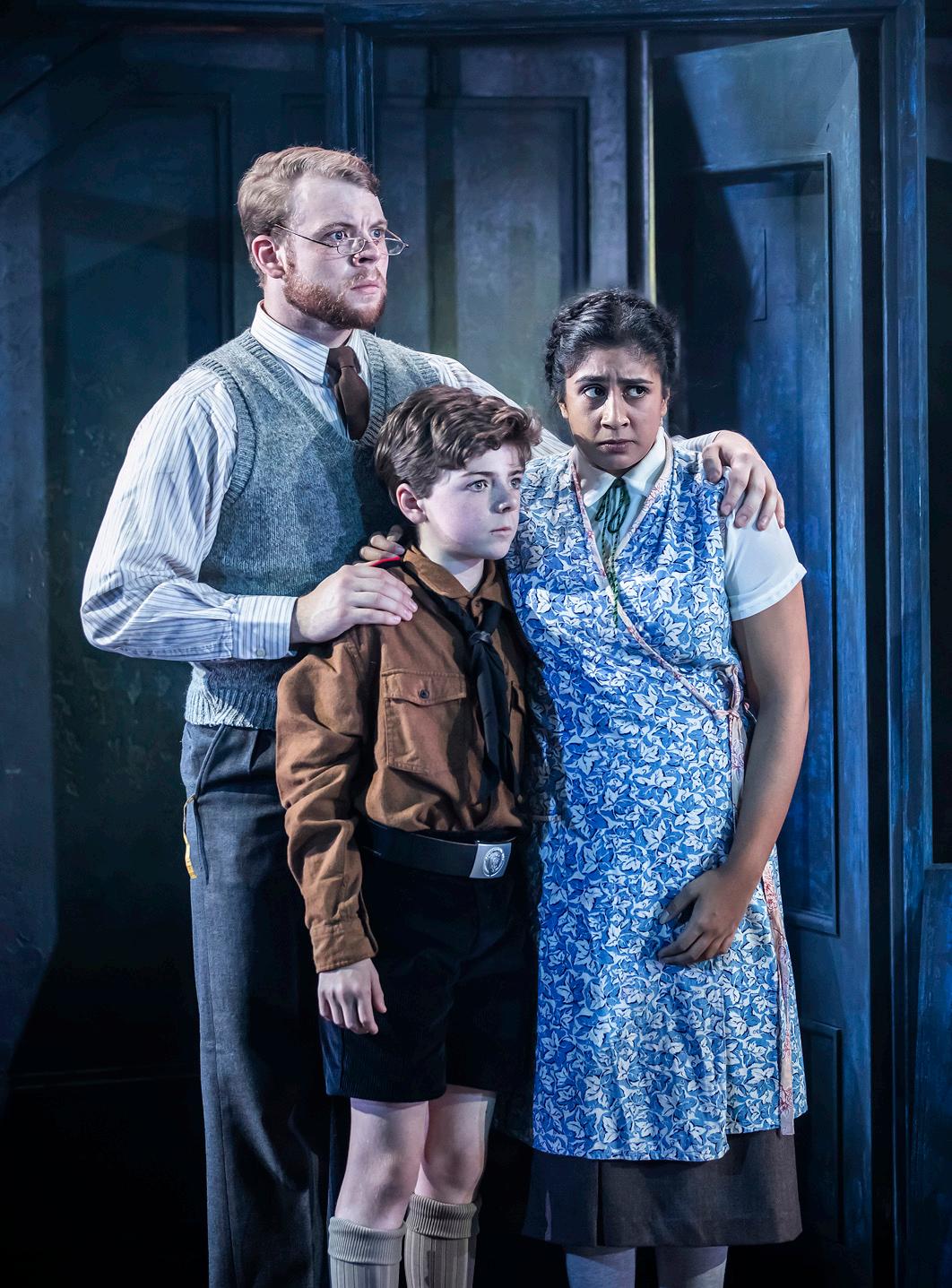
Following World War I, Germany faced economic hardships, including hyperinflation and high unemployment rates. The Treaty of Versailles, which imposed harsh reparations on Germany, also fuelled resentment among the population. Hitler capitalized on these grievances, promising economic stability and national revival.
Hitler was a skilled orator who used propaganda effectively to manipulate public opinion. Through speeches, mass rallies, and the Nazi party's propaganda machine, Hitler presented himself as a strong and charismatic leader, appealing to German nationalism and promising a better future.
Hitler and the Nazi Party targeted minority groups, particularly Jews, as scapegoats for Germany's problems. Antisemitic sentiments were already prevalent in German society, and Hitler's antisemitic rhetoric struck a chord with many, contributing to his popularity.
“I know what you’re thinking -- this could never happen today, because you wouldn’t let it. But Hitler’s regime required the buy-in of teachers, doctors, lawyers, clergy, neighbours. You know. People like you.”
German complicity in the Nazi regime refers to the involvement and support of German individuals, institutions, and organizations in the policies and actions of the Nazi Party during Adolf Hitler's rule. While not all Germans were complicit, it is essential to recognize that a significant portion of the population actively or passively contributed to the regime's goals.
Various Nazi organizations, such as the Hitler Youth, the SS, and the Nazi Party itself, attracted millions of Germans who actively participated in their activities. These organizations played a significant role in propagating Nazi ideology, enforcing loyalty to the regime, and carrying out its policies. The Hitler Youth promoted militarism, racial superiority, and loyalty to Hitler. Members underwent military-style training, participated in ideological education, and engaged in various activities. Participation in the Hitler Youth was compulsory, and it played a significant role in shaping the attitudes and beliefs of young Germans during the Nazi era.
It is important to note that there were also individuals and groups within Germany who resisted the Nazi regime, such as the White Rose resistance movement and individuals who helped hide or protect persecuted individuals. However, German complicity in the Nazi regime reflects a complex historical reality that involves both active support and passive compliance in varying degrees.
Prejudice and discrimination are interconnected phenomena that have long-lasting impacts on individuals and society as a whole.
Prejudice refers to preconceived opinions, attitudes, or stereotypes held by individuals or groups towards others based on characteristics such as race, ethnicity, religion, gender, sexual orientation, or social class. Prejudice often stems from ignorance, fear, or a lack of exposure to different cultures or ideas. It involves making judgments about others without sufficient knowledge or understanding.
Discrimination occurs when prejudiced attitudes are put into action, resulting in unfair treatment, exclusion, or the denial of rights and opportunities to individuals or groups. Discrimination can take various forms, such as racial or religious discrimination, gender inequality, workplace discrimination, or systemic discrimination embedded in institutions and policies. It perpetuates social inequality, hinders social progress, and denies individuals the chance to fulfil their potential.
Addressing prejudice and discrimination requires collective effort and individual introspection. Education, cultural exchange programs, and promoting diversity and inclusion can help challenge stereotypes and foster empathy. It is crucial to recognize and confront our own biases, promote equal rights, and speak up against discrimination. Laws and policies that protect against discrimination and promote equality are also vital. By actively combating prejudice and discrimination, we can build a more inclusive and equitable society where every individual is valued and respected, regardless of their background or characteristics.
ALEX STEINER
Son, you cannot pretend to be someone who’s Black. Or... anything other than the good Catholic German boy you are.
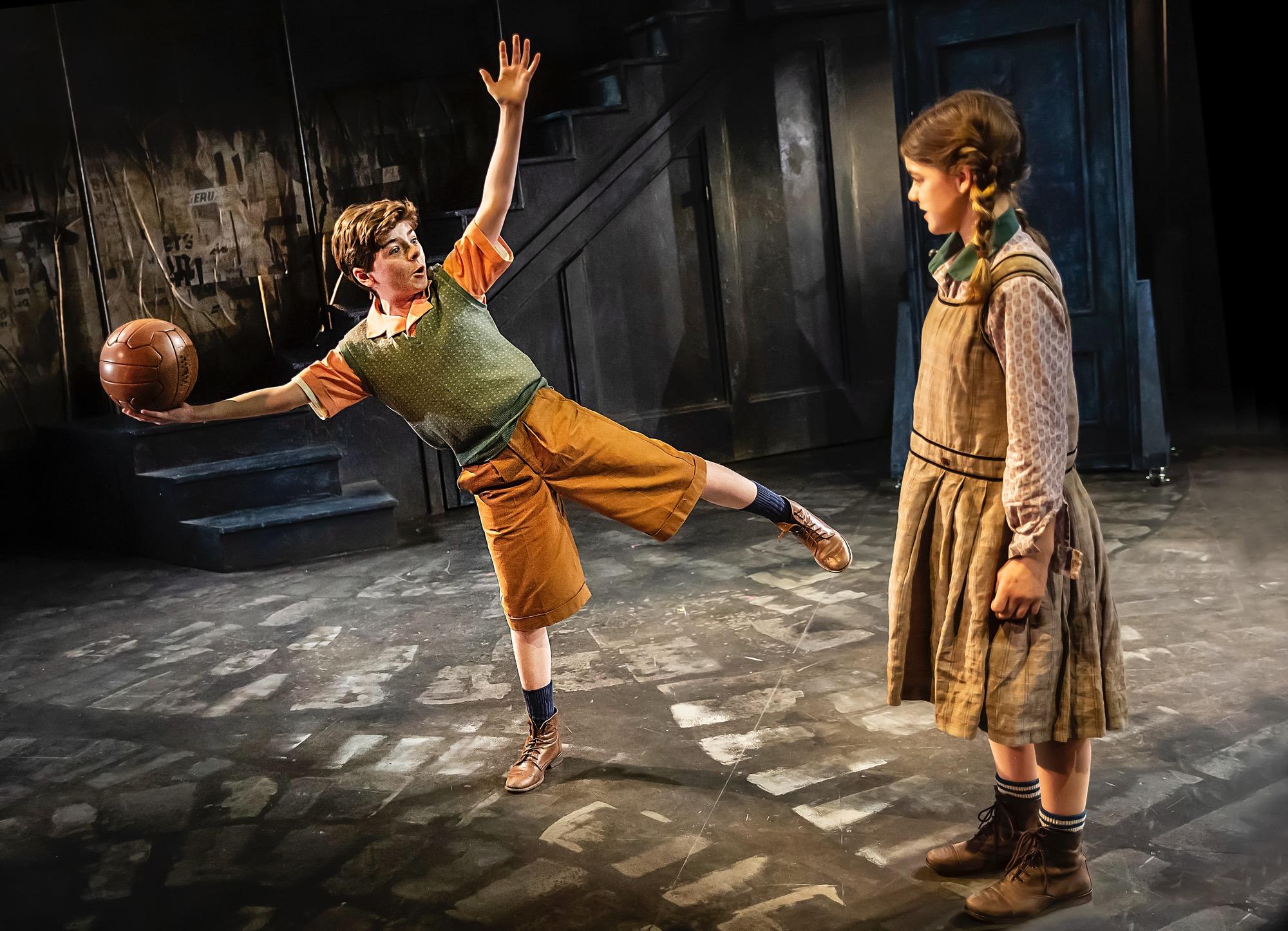
RUDY
Why not?
ALEX STEINER
Because you look like me. You’re...safe.
Other people don’t see Jesse Owens the way you do.
"Bridging, not bonding" is a concept in sociology that focuses on creating connections and fostering understanding among individuals and communities, rather than reinforcing exclusive or insular groups. It emphasizes the importance of building bridges across differences, encouraging collaboration, empathy, and inclusivity.
Bridging requires actively listening and seeking to understand others' perspectives and experiences. It involves putting oneself in someone else's shoes, acknowledging their unique circumstances, and empathizing with their challenges and aspirations.
Isolating German Jews through laws and rhetoric resulted in little opportunity for bridging activities, with Germans from other religions and social groups unable to connect with their Jewish friends and neighbours.
In Nazi Germany, the rise of antisemitism was a central component of Adolf Hitler's ideology and the policies of the Nazi Party. Antisemitism refers to prejudice, discrimination, and hatred directed towards Jewish individuals.
The Nazis scapegoated Jews, blaming them for Germany's economic and social challenges. Hitler and his followers propagated the belief that Jews were responsible for the country's defeat in World War I, economic depression, and political instability. Once in power, the Nazis implemented a series of discriminatory laws targeting Jews. The Nuremberg Laws of 1935, for example, deprived Jews of their citizenship, barred them from holding certain jobs, and forbade intermarriage between Jews and nonJews. In November 1938, the Nazis orchestrated a state-sanctioned pogrom known as Kristallnacht or the "Night of Broken Glass." Jewish homes, businesses, synagogues, and cemeteries were vandalized and destroyed. This violent event marked a significant escalation of antisemitic actions.
RUDY Tommy says Jews drink Babies’ blood.
LIESEL Tommy’s a lying idiot.
RUDY Did he have a tail like a rat?
LIESEL Do you?
RUDY I’m not a Jew.
LIESEL Rudy, they’re trying to brainwash you.
The Nazis utilized propaganda to spread antisemitic ideas and reinforce negative stereotypes about Jews. They depicted Jews as traitors, manipulators, and enemies of the German people. Propaganda films, newspapers, and public speeches were used to dehumanize and demonize the Jewish population. The Nazis propagated the concept of Aryan racial superiority, claiming that Germans, as an allegedly pure Aryan race, were superior to all other races, particularly Jews. This ideology fuelled antisemitism and justified the persecution and eventual extermination of millions of Jewish individuals during the Holocaust.

The Holocaust was one of the darkest and most tragic events in human history and resulted in the systematic persecution and genocide of around six million Jewish people, along with millions of others targeted by the Nazi regime.
Jewish people were forcibly relocated to confined areas called ghettos, where they lived in overcrowded and inhumane conditions. However, the ghettos were only the beginning. The Nazis also established concentration camps, which were large prison-like facilities where millions of innocent people were subjected to unimaginable suffering, torture, and death.The Nazis devised a plan called the "Final Solution" to exterminate all Jews. They organized mass deportations, transporting people from ghettos and other areas to extermination camps. These camps were equipped with gas chambers and crematoriums, where victims were killed and their bodies disposed of. The most notorious of these camps was Auschwitz-Birkenau.
While the primary target of the Holocaust was the Jewish population, the Nazis also targeted other groups deemed undesirable, including Romani people, disabled individuals, political dissidents, homosexuals, and Jehovah's Witnesses. This wide-scale persecution aimed to eradicate anyone who did not fit into the Nazis' vision of a "master race."
Despite the immense odds, many individuals and groups resisted the Nazis during the Holocaust. Acts of resistance included hiding Jewish individuals, producing underground newspapers, and participating in uprisings within concentration camps. Eventually, as World War II came to an end, Allied forces liberated the concentration camps, bringing an end to the horrors of the Holocaust.
Contemporary antisemitism refers to the persistence and manifestation of prejudice, discrimination, and hatred against Jewish individuals in modern times. While antisemitism has a long history, it continues to exist in various forms today.

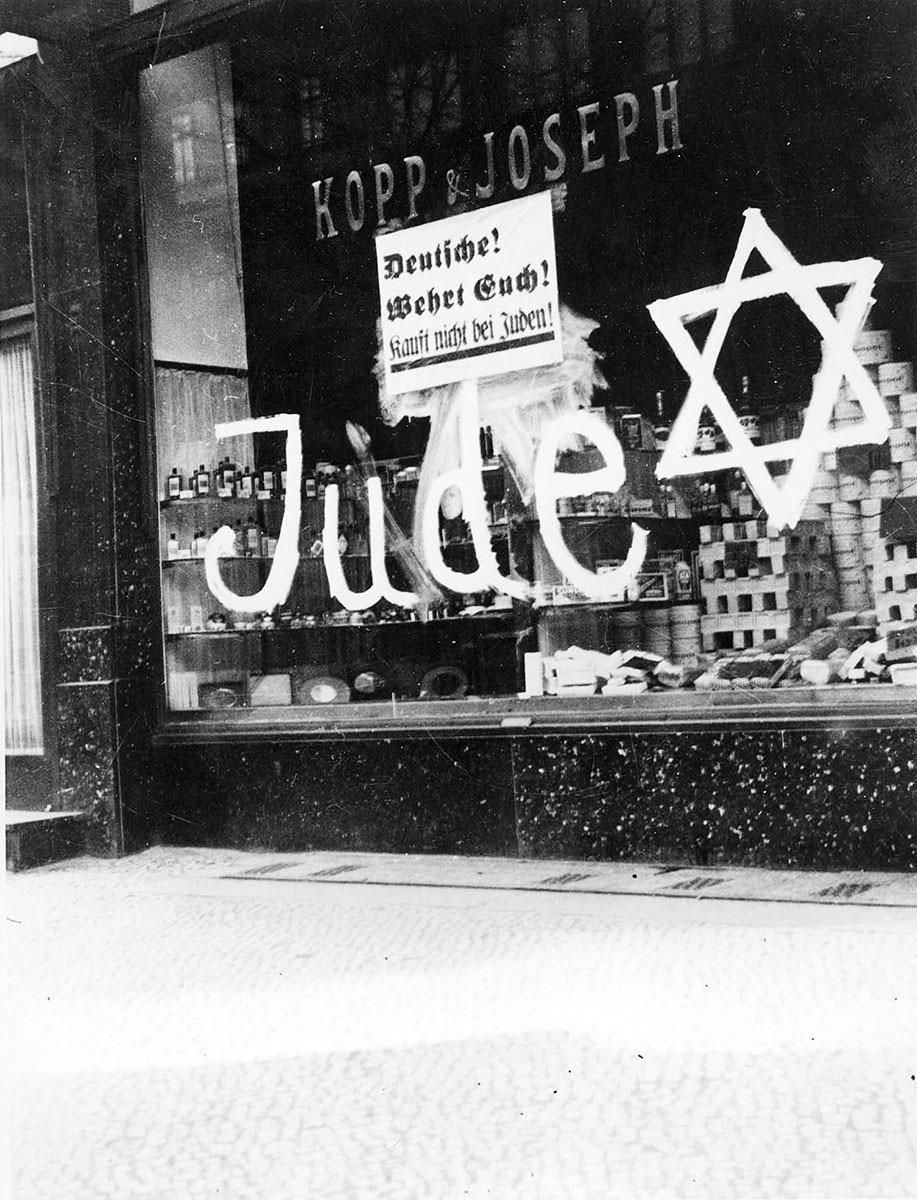
Traditional forms of antisemitism, rooted in religious, racial, or conspiracy theories, persist. These include stereotypes portraying Jews as greedy, manipulative, or controlling societal institutions, often drawing on historical prejudices and myths.

Holocaust denial or distortion is a form of antisemitism that seeks to undermine or deny the genocide perpetrated by the Nazis during World War II. It involves spreading misinformation, minimizing the scale of the Holocaust, or accusing Jewish individuals of fabricating the event. Other antisemitic conspiracy theories, such as those involving Jewish control of the media, global finance, or political systems, continue to circulate. These conspiracy theories fuel prejudice and contribute to the marginalization of Jewish communities.

Criticism of Israeli government policies or actions is not inherently antisemitic. However, when criticism of Israel becomes a cover for prejudice against Jews as a whole, it can cross the line into antisemitism. This often manifests as double standards, delegitimization, or the denial of Israel's right to exist.
How do these themes relate to The Book Thief?

Political rhetoric refers to the strategic and persuasive use of language and communication techniques by politicians, political leaders, or parties to shape public opinion, advance their agenda, and influence political outcomes. It involves the deliberate use of persuasive techniques, such as emotional appeal, storytelling, symbolism and language manipulation, to sway the beliefs, attitudes, and actions of the target audience.
Political rhetoric played a crucial role in Nazi Germany, as it was employed by Adolf Hitler and the Nazi Party to consolidate power, promote their ideology, and manipulate public opinion. Hitler was a highly skilled orator and used his speeches to captivate audiences, evoke emotions, and spread propaganda.
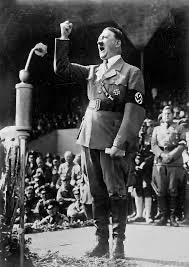

Hitler cultivated a cult of personality around himself, presenting himself as a charismatic and infallible leader. His speeches were often grandiose and focused on his vision for Germany's future, presenting himself as the savior of the nation. Nazi rhetoric often exploited fear and insecurity among the German population. Hitler used vivid and dramatic language to describe the perceived threats to Germany, such as the Treaty of Versailles, communism, and the Jewish people, instilling a sense of urgency and rallying support for his cause.
Nazi rhetoric emphasized extreme nationalism and the idea of Aryan racial superiority, aiming to create a sense of unity among the German people. Hitler used emotionally charged language to foster a collective identity and foster a feeling of belonging among his supporters. He emphasized the need for discipline, sacrifice, and unwavering loyalty to the Nazi Party and the German nation.
It all relied heavily on scapegoating, blaming specific groups for Germany's problems. Jews were portrayed as a threat to German society, and their demonization was a central theme in Hitler's speeches. Propaganda was used extensively to reinforce these narratives and manipulate public opinion.
NARRATOR YOU CAN FIGHT WITH WORDS AND WIN WITH WORDS AND HYPNOTIZE WITH WORDS...
HITLER I WILL NOT HAVE TO FIRE A GUN I’LL RULE WITH WORDS I’LL START TO PLANT THEM ONE BY ONE AND RULE WITH WORDS
Censorship refers to the act of suppressing, restricting, or controlling information, ideas, or expressions of various forms, such as speech, writing, art, or media. It involves the authority of power to determine what is acceptable or permissible to be disseminated, viewed, or heard by the public.
Censorship can have both intended and unintended consequences. Proponents argue that censorship is necessary to maintain social order, protect public, moral, prevent the spread of harmful information, or safeguard national security. Critics, on the other hand, argue that censorship infringes upon freedom of speech, stifles creativity, hampers public discourse, and restricts access to information necessary for an informed citizenry.
The balance between freedom of expression and the need for certain limitation or regulations is a complex and ongoing debate, differing across countries, cultures, and legal systems. Modern censorship includes governments around the world imposing restrictions on internet access and online content, such as China, Iran, and North Korea. Social Media platforms themselves play a huge role in moderating usergenerated content. Cultural and artistic censorship includes the banning of books, music, or art deemed politically sensitive, morally offensive, or against societal norms.

Today we honour our great leader by burning the books of our enemies: The communists! The homosexuals! The Jews! Say goodbye to their poison!
The NARRATOR AS KOMMANDANT lights the pyre of books. It flames brightly.
Censorship played a significant role in Nazi Germany as a tool for controlling information, shaping public opinion, and suppressing dissent.
The Nazis gained control of newspapers, radio stations, and publishing houses, allowing them to shape and control the narrative presented to the public. Independent media outlets were shut down or brought under state control, ensuring that only pro-Nazi content was distributed.
Propaganda Minister Joseph Goebbels led the charge in spreading Nazi propaganda. Films, newspapers, and radio broadcasts were heavily censored to ensure that they adhered to Nazi ideology. The Nazis organized book burnings, where they destroyed books deemed "un-German" or contrary to Nazi ideology. These burnings targeted works by Jewish, communist, liberal, or critical authors. The aim was to suppress dissenting ideas and enforce ideological conformity.
Any form of dissent, including political opposition, critical art, or literature, was ruthlessly suppressed. Individuals who spoke out against the regime faced severe consequences, including imprisonment or death. The Gestapo, the Nazi secret police, closely monitored and punished those who defied or criticized the regime.
The Nazi regime exerted control over education, rewriting textbooks and curriculum to indoctrinate young minds with Nazi ideology. Schools became platforms for spreading propaganda and fostering loyalty to the regime.
